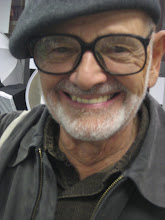No one can convince me that the sounds of words and the way we produce those sounds are only
accidentally related to meanings. I speak not of the clearly onomatopoetic words like "crash," "bang," "thunder," "murmur." The case is obvious for such words.
I speak of words like "flame," flicker," "flash," "flare," which all have to do with moving light, and maybe something to do with the moving air that makes those lights move. For palpable proof,
go ahead, try to make a candle
flame
flicker producing the sound [gl]; but you CAN do it making the sound [fl]!
And consider these words: "fly," "flight," "flute," "flutter." Even when moving light is not involved, moving
air is in the meaning AND utterance of all these words.
Derived from our bodies, words can
mimic meanings.


